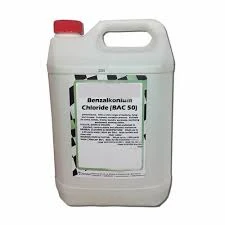Applications of Poly Aluminum Chloride in Water Treatment and Industrial Processes
The Versatile Uses of Poly Aluminum Chloride
Poly Aluminum Chloride (PAC) is a coagulant widely employed across various industries due to its multi-functional properties and effectiveness. Known for its high performance in water treatment, its popularity has surged due to its ability to improve water clarity and reduce the amount of sludge produced in the process. In this article, we explore the diverse applications of PAC and its significance in different sectors.
Water Treatment
The most prominent use of Poly Aluminum Chloride is in water treatment facilities. When used as a coagulant, PAC helps to remove impurities from water by neutralizing the charge of suspended particles, allowing them to clump together (or coagulate) and settle more readily. This process is particularly beneficial in both drinking water purification and wastewater treatment. The effectiveness of PAC can significantly enhance the efficiency of sedimentation processes, leading to clearer water, reduced chemical usage, and less residual sludge.
Paper Industry
In the paper manufacturing sector, PAC acts as a retention aid. It helps improve the retention of fine particles and fillers in the paper pulp, enhancing the quality and consistency of the final product. Moreover, its use in the sizing process aids in achieving better printability and strength in paper products. The paper industry benefits from PAC not just in terms of quality but also in the reduction of production costs as it minimizes material loss during manufacturing.
Cosmetics and Personal Care
Poly Aluminum Chloride's role extends into cosmetics and personal care products. It is often utilized in antiperspirants and deodorants due to its astringent properties. When applied to the skin, PAC can cause temporary constriction of sweat glands, effectively reducing perspiration. Additionally, its mildness makes it suitable for sensitive skin formulations, offering a gentle alternative for consumers.
poly aluminum chloride uses

Food Industry
In the food industry, PAC is used as a food processing agent and clarifying agent. It is particularly beneficial in juice and beverage production, where it helps to clarify liquids by removing suspended solids and turbidity. This leads to a more appealing product for consumers, not only in clarity but also in taste and quality. Regulatory bodies have approved certain grades of PAC for food contact, ensuring safety in its application.
Textile Industry
The textile industry also employs Poly Aluminum Chloride in dyeing and finishing processes. PAC assists in the fixation of dyes onto fabrics, improving color vibrancy and consistency while reducing water and dye wastage. This enhances the overall efficiency of dyeing processes and contributes to better environmental practices by minimizing chemical discharge and wastewater.
Agricultural Applications
In agriculture, PAC is used as a soil conditioner. Its application can improve soil structure and increase nutrient availability, which in turn enhances crop productivity. Furthermore, PAC can be utilized in irrigation water treatment, helping to ensure that water used for agricultural purposes is clean and safe, thereby promoting healthy crop growth.
Conclusion
Poly Aluminum Chloride is indeed a versatile chemical with a wide range of applications across various industries. Its effectiveness in water treatment, contributions to paper manufacturing, use in personal care products, role in food processing, benefits in textile production, and applications in agriculture demonstrate its multifaceted nature. As industrial needs evolve and environmental concerns rise, the demand for efficient, effective, and safe chemicals like PAC will likely continue to grow. Thus, understanding and leveraging the capabilities of Poly Aluminum Chloride will be crucial for industries aiming for sustainability and enhancement in product quality.
-
Water Treatment with Flocculant Water TreatmentNewsJun.12,2025
-
Polymaleic AnhydrideNewsJun.12,2025
-
Polyaspartic AcidNewsJun.12,2025
-
Enhance Industrial Processes with IsothiazolinonesNewsJun.12,2025
-
Enhance Industrial Processes with PBTCA SolutionsNewsJun.12,2025
-
Dodecyldimethylbenzylammonium Chloride SolutionsNewsJun.12,2025





